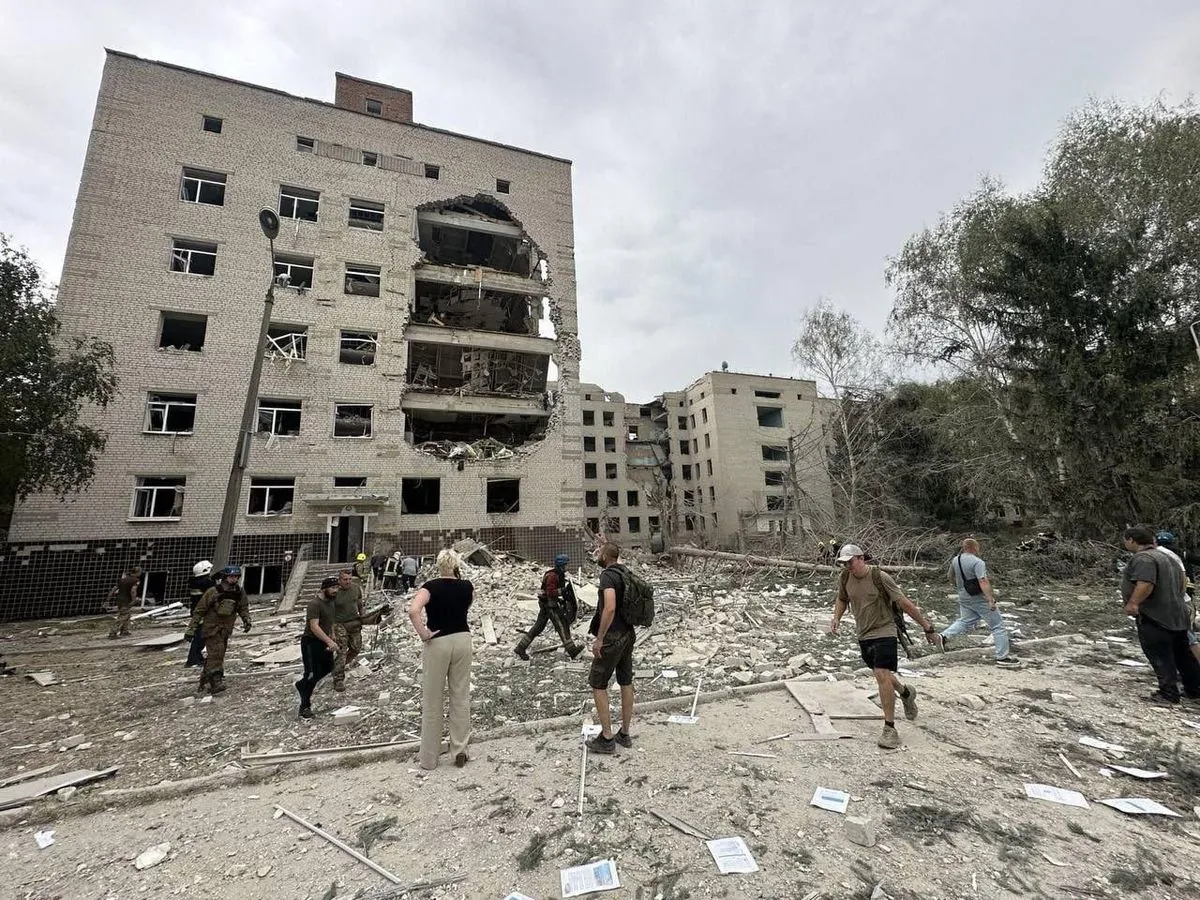In a tragic turn of events, the city of Poltava, located in central Ukraine, became the target of a devastating missile attack. Two ballistic missiles struck the Military Institute of Telecommunications and Information Technology, resulting in 55 fatalities and leaving 328 individuals injured. This incident marks one of the deadliest single bombardments in the ongoing conflict between Russia and Ukraine.
The attack occurred approximately 11 months ago, on what is believed to be October 10, 2023. The missiles, traveling at an astonishing speed of 15,000 miles per hour, hit the institute as people were attempting to evacuate, causing chaos in corridors and stairwells. The aftermath was catastrophic, with dust-covered bodies strewn amid the debris, many missing limbs.
Hryhoriy Oksak, head of Poltava Regional Hospital, expressed his shock at the unprecedented number of injured people received by the facility. Over 70 victims were admitted, with the majority in critical and serious condition. The hospital's resources were stretched to their limits, with all nine operating rooms occupied and surgeries lasting a total of 17 hours.
Among the survivors was Maksym Havryliuk, a 27-year-old cadet who suffered severe head injuries. His mother, Oleksandra Bystro, shared the harrowing experience of her son, who had been taking a communications course at the institute due to a heart condition that prevented him from combat duty.
The attack on Poltava, a city with a rich history dating back to 899 AD, came as a shock to many. Known for its Ukrainian Baroque architecture and cultural significance, Poltava had remained relatively untouched by the escalating airstrikes in neighboring regions. This attack served as a grim reminder that no area is truly safe in times of conflict.
Mykhailo Tonchev, a neurosurgeon at the hospital, spent six hours on a single patient's spinal reconstruction. He described the attack as "proof there is no way to talk to our neighbor," referring to Russia's ongoing aggression against Ukraine.
The impact of this tragedy extends beyond the immediate casualties. Families waited outside the morgue to retrieve the remains of their loved ones, some receiving only fragmented remains. The emotional toll on both survivors and their families is immeasurable.
"It's an unspeakable feeling for a mother of my age to lose my only son."
As Poltava, a city of around 280,000 people, grapples with this tragedy, the resilience of its residents is being put to the test. The city, which played a significant role in Ukrainian Cossack culture and has been an important educational and industrial center, now faces the challenge of healing and rebuilding in the wake of this devastating attack.
This incident serves as a stark reminder of the ongoing conflict's impact on civilian life, even in areas previously considered relatively safe. As Ukraine continues to defend its sovereignty, the international community watches with concern, hoping for a peaceful resolution to this prolonged and devastating war.
